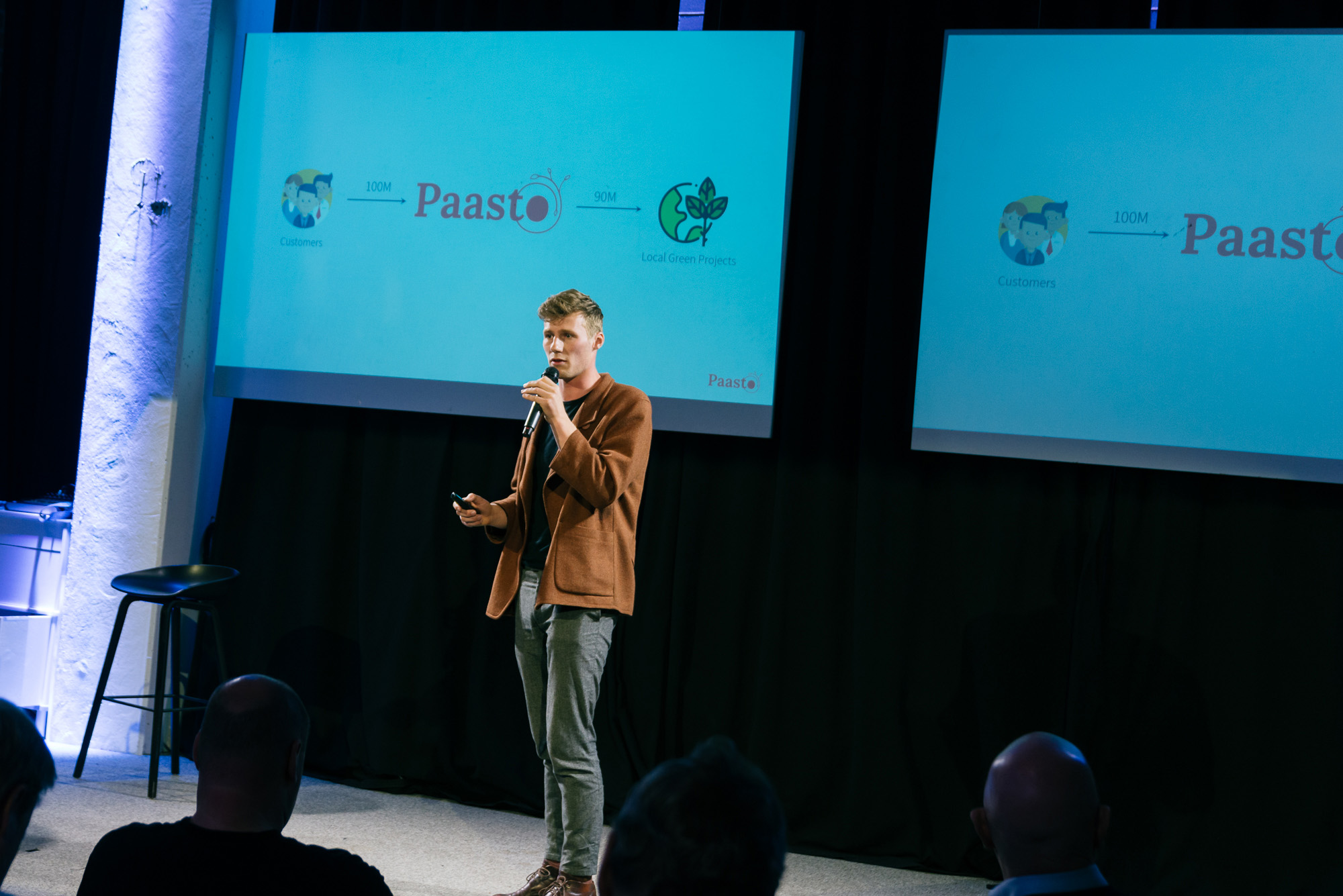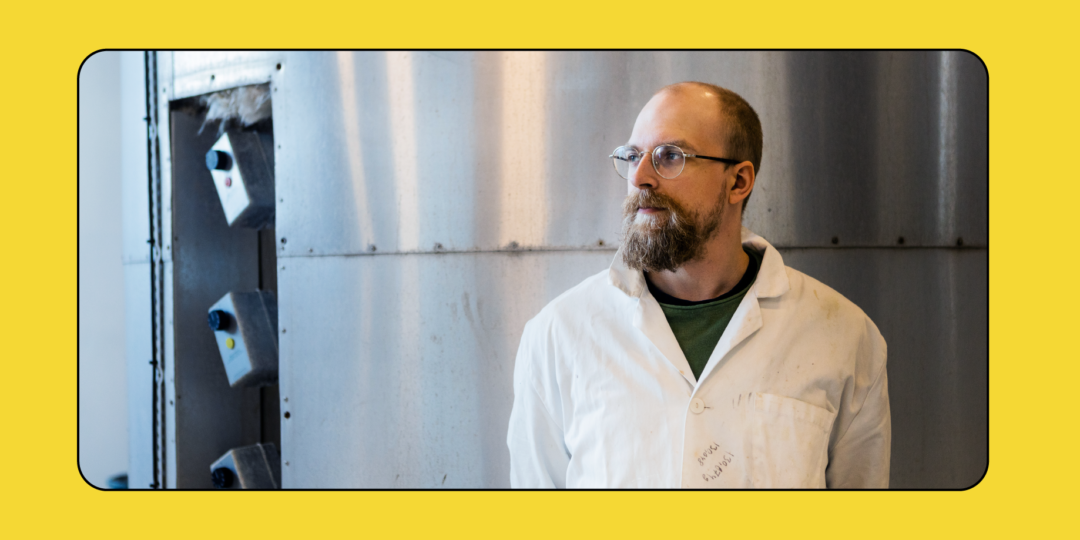As the world keeps on heating up, both founders and accelerators are excited about startup-ideas that fight global warming. Startups might not be the answer to all our worries, but with proper funding, encouragement and education, some raw ideas might ripen into world-changing companies. At Aalto Ventures Program, we are happy to have had three sustainability-focused teams go through Startup Experience this spring with resounding success.
Urgent and unprecedented changes are required for humanity to limit global warming to 1,5 °C, the level of warming suggested by IPCC to still be somewhat tolerable. Global politics are key in reaching the goal, but private companies have a large part to play as well. While it can be argued that large companies can have a larger impact, most corporations are still solving problems that existed when those corporations were founded, not focusing on the problems we have only recently started to pay attention to. Many corporations do a lot to reduce their carbon footprint, but few are ready to pivot and change their focus to slowing down global warming. Luckily, more and more startups are rising to the challenge and coming up with new, innovative solutions for a more sustainable world. Sustainable in this context is mostly interchangeable with climate-friendly, even though there are other sustainable development goals as well.
Millennials are showing more interest in the social and environmental impact of both their consumer and investment decisions than previous generations. As they have been getting older and entering working life, it’s only natural that the number of sustainability-focused startups is also on the rise. [1] Even though sustainability-driven startups are still a minority, environmental impact is seen as one of the key startup trends, especially in the Nordics. [2] [3]
While it can be argued that large companies can have a larger impact, most corporations are still solving problems that existed when those corporations were founded.
The influence of the trend was clear during this spring’s Startup Experience, a course by Aalto Ventures Program where students form teams and turn an idea into a viable business, without needing to start a real company — unless they want to. The latest iteration of the course had eight groups, three of which formed their business ideas around environmental impact. That is the largest percentage of sustainability-focused ideas on the course to date.
Trukatu’s vision is to make ownership redundant, and they created a peer-to-peer rental platform that makes it easy to rent items one might otherwise buy just to use them occasionally. Foodl, on the other hand, is a peer-to-peer network for sharing leftover food that would otherwise go to waste with people nearby. Paasto is creating a way to compensate for one’s CO2 emissions by donating to meaningful projects that have an impact in the local area.

Startup Experience students pitched their ideas at AVP Season Finale. Team Foodl created a peer-to-peer network for sharing leftover food locally.
The interest towards sustainability-focused startups has also been noticed at Kiuas, the leading startup accelerator in Finland that originated in Aalto University. According to CEO Aaro Isosaari, 5–10 startups out of the 123 applications Kiuas received this year were focused on sustainability, depending on where one draws the line. While the percentage of sustainability-focused startups is not as big as on Startup Experience, three of them made the cut and got into the program of 17 startups, which tells something about the quality of the companies and the relevance of the problems they aim to solve. Andaazle is building a sustainable alternative to mass fashion via an online custom made-to-order clothing service. Pinoa Foods is using vertical cultivation and innovative solutions to produce food sustainably. Two Tails offers dog food that makes dogs and their parents happy without harming the environment. [4]
There is a clear demand for startups that tackle environmental issues, but they still struggle to find funding. Even though the famed accelerator Y Combinator has set out a call for startups that help remove carbon dioxide from the air [5], few startups with the mission to halt global warming have received major funding.
One of the more successful ones is Carbon Engineering, a Canadian company founded in 2009 that pulls carbon dioxide out of the air by running it through specially formulated chemicals. The company raised $68 million this spring which sounds big until compared to for example Slack. The messaging company founded in the same year has raised over ten times as much in the same time. The challenge of receiving funding seems to stem from the clean-tech boom in the late 2000s when the venture capitalists that invested in environmentally-focused technology lost a lot of money. Back then, investors learned that it is a lot easier to make money with an internet product than by creating new hard technology to solve real problems. [6]
Students need to be taught not only how to create companies that are ecological or that make money, but how to create companies that are sustainable — both environmentally and financially.
The real problems do need solving though, and it seems likely that the planet will survive without another online game or messaging app. Luckily, some venture capital funds like Fifty Years already focus entirely on funding startups that are serious about striving towards a more sustainable future. Besides VC’s, accelerators and universities can also help climate-friendly startups thrive. Early guidance by teachers and mentors can have a profound influence on the final idea of the team, so incorporating sustainability into entrepreneurship education is crucial. It cannot be forgotten, however, that a company needs to be profitable to stay alive in the long run. Therefore, students need to be taught not only how to create companies that are ecological or that make money, but how to create companies that are sustainable — both environmentally and financially.
Emphasizing the importance of sustainability early on will increase the number of startups that focus on big issues. Having more and higher quality startups that fight for the environment will help the whole field attract more VC funding. More funding means, in turn, more capabilities to realize even the wildest ideas, and some of those ideas might end up making a huge difference in the world.

Paasto investigated the business idea of compensating one’s CO2 emissions by donating to meaningful projects that have an impact in the local area. Startup Experience students pitched their ideas at AVP Season Finale.
Sources:
[1] https://www.whatinvestment.co.uk/disruptive-technologies-rising-popularity-in-sustainable-startups-2555264/
[2] https://www.insidescandinavianbusiness.com/article.php?id=253
[3] https://medium.com/maria-01/top-5-trends-inside-the-finnish-startup-ecosystem-in-2019-6b8d5e6c361b
[4] https://www.kiuas.com/batch
[5] https://qz.com/1435452/y-combinator-wants-startups-that-remove-carbon-dioxide-from-the-air/
[6] https://www.nytimes.com/2019/05/07/business/carbon-removal-technology-start-ups.html



